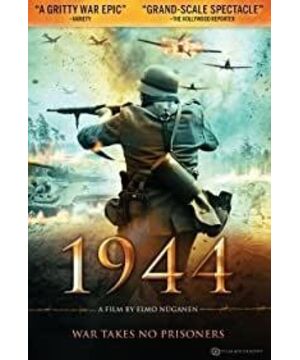1. I really like the movie. Through a battle, it naturally changed from the German perspective in the first half to the Soviet perspective, and interspersed and combined through the connection of some detailed characters. For example, the orphan girl adopted by the sister at the end happened to be the brother retreating. The girl rescued in action.
2. Although two perspectives and two groups of protagonists are used, the theme of the film is not divorced at all. It has always revolved around the sad fate of a small country in the war between great powers. This kind of war between people of the two camps is different from a civil war, such as North Korea. The fighting between the two sides of the war is completely dominated by external forces, which makes people even more sad.
3. The interludes of the film are all very good, whether it is the singing of the German army retreating on foot in the middle of the film or the music of the burial at the end of the battle, it is not only good, but also sets off the atmosphere just right.
4. When it comes to the details of the battle, whether it is the trench defense or the coordinated attack by the tanks, the shots are very textured, much better than the siege of Zedoville in Ireland. And the shot is crisp and neat, never sloppy.
5. You can see the comparison of the performance of the political cadres of the German army and the political cadres of the Soviet army, as well as the actual effect.
I like it very much, it's worth seeing.
View more about 1944 reviews









